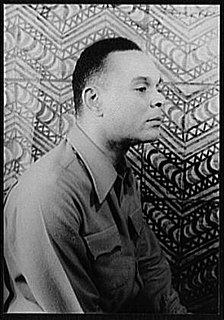A Quote by Shelby Steele
America still has a race problem, though not the one that conventional wisdom would suggest: the racism of whites toward blacks. Old fashioned white racism has lost its legitimacy in the world and become an almost universal disgrace.
Related Quotes
The problem is that white people see racism as conscious hate, when racism is bigger than that. Racism is a complex system of social and political levers and pulleys set up generations ago to continue working on the behalf of whites at other people's expense, whether whites know/like it or not. Racism is an insidious cultural disease. It is so insidious that it doesn't care if you are a white person who likes Black people; it's still going to find a way to infect how you deal with people who don't look like you.
For most Black people there is still poverty and desperation. The Ghettos still exist, and the proportion of Blacks in prison is still much greater than Whites. Today, there is less overt racism, but the economic injustices create an "institutional racism" which exists even while more Blacks are in high places, such as Condoleeza Rice in Bush's Administration and Obama running for President.
If one lives in a country where racism is held valid and practiced in all ways of life eventually, no matter whether one is a racist or a victim, one comes to feel the absurdity of life....Racism generated from whites is first of all absurd. Racism creates absurdity among blacks as a defense mechanism.
Part of our identity is the idea that racism is still there and that we are vulnerable to it. So, the question is, 'How vulnerable?' In other words, is it really a problem for us, or is it just a small thing. How do you evaluate racism in America on a scale of 1 to 10? My suspicion is that most blacks overrate it a bit. Not to say it's not there, but we overrate it because this masking is part of our relationship to the larger society. This is a way we keep whites on the hook. We keep them obligated, and we keep ourselves entitled. There's an incentive, you see, to inflate it a little bit.
And what is the Republican solution to these outrageous [racial] inequalities? There isn't one. And that's the point. Denying racism is the new racism. To not acknowledge those statistics, to think of that as a 'black problem' and not an American problem. To believe, as a majority of FOX viewers do, that reverse-racism is a bigger problem than racism, that's racist.
In the U.S., while individual whites might be against racism, they still benefit from their group's control. Yes, an individual person of color can sit at the tables of power, but the overwhelming majority of decision-makers will be white. Yes, white people can have problems and face barriers, but systematic racism won't be one of them.
I am not naive, and I do realize that racism is alive and well in the United States of America. I am also fully aware that when segregation ended, we didn't all live happily ever after. No one can convince me, however, that life in America would be better if blacks and whites had stayed separate and unequal.
Why don't we hear more about and from Asians when it comes to race in America? Are Asians the new Invisible Man - there but not there? In some ways, yeah. Blacks and whites are always carping about the metrics of racism. And any conversation about immigration reform is immediately flipped into a referendum on Hispanics.
As for the not-black black president issue - white people can imagine blacks worse off than them, no problem. And now they can imagine blacks better off, no problem. But they still can't imagine black people who are just like them. That's the real problem. That's racism. Not being able to believe that those others are actually just like you.

































